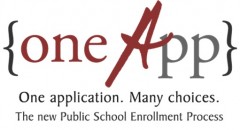NACSA Blog
Press Releases
 |
National Organization Supports Stronger Standards but No MoratoriumWith this morning’s announcement by Democratic state legislators in Michigan proposing a moratorium on new charter schools in the state, Greg Richmond, President and CEO of the National Association of Charter School … |
 |
NACSA Calls Annenberg Institute Accountability Report Disappointing, IncompleteThe National Association of Charter School Authorizers (NACSA) released the following statement in response to the recommendations in a report on authorizer accountability released yesterday by the Annenberg Institute at Brown University: … |
 |
National Association of Charter School Authorizers Lauds South Carolina’s Strong Stance on Charter QualityThe National Association of Charter School Authorizers (NACSA) congratulated the state of South Carolina for taking a notable step in improving the overall quality of the state’s charter school sector. In a … |
 |
National Association of Charter School Authorizers Lauds Tennessee’s Strong Stance on Charter QualityThe National Association of Charter School Authorizers (NACSA) congratulated the state of Tennessee for taking a notable step in improving the overall quality of the state’s charter school sector. In a statement … |
 |
National Association of Charter School Authorizers Announces Support for U.S. House Quality Charter Schools BillThe National Association of Charter School Authorizers (NACSA) has announced its strong support for new legislation that focuses on both the growth and the quality of the charter school sector. The organization’s … |
 |
Helping Charter Schools Better Serve English Language LearnersThis week the National Alliance for Public Charter Schools released Serving English Language Learners: A Toolkit for Public Charter Schools. This timely resource is designed to provide charter school leaders with clear guidance … |
 |
School Choice for AllWhile most of the education-related news coming out of Philadelphia lately has been about school closures similar to those just announced in Chicago, there is other work going on that has the … |
 |
Scaling Quality, Closing FailureA new report, Searching for Excellence: A Five-City, Cross-State Comparison of Charter School Quality, by researchers at Public Impact and published by the Thomas B. Fordham Institute examines charter school performance in five cities, Albany, Chicago, … |
 |
Postcard from the Statehouse: St. Paul, MNHello from a chilly St. Paul, Minnesota! Earlier this week, the House Education Committee chose to incorporate into an omnibus bill, HF 998, legislation that would create a closure provision for charter … |
 |
Core Principles and Essential PracticesThis week NACSA released the second edition of its Index of Essential Practices. The Index articulates a set of practices for authorizers that can significantly improve the quality of their work—and in turn … |
 |
Accountability in MinnesotaCheck out the new op-ed from Al Fan of Charter School Partners and NACSA’s Alex Medler on the need for greater accountability for the state’s charter schools. “A bi-partisan bill is making … |
 |
Postcard from the Statehouse: Nashville, TNGreetings from Nashville! Earlier this week, the House Education Committee passed HB 0702, legislation that would create the State Charter School Panel, an independent chartering board. The Panel would serve as an … |
 |
Charter School Authorizers Group Issues 2012 Professional Practice IndexThe National Association of Charter School Authorizers (NACSA) today released its 2012 Index of Essential Practices, a set of professional practices to guide quality charter school approval and monitoring. Good charter school … |
 |
Beware Charter School Authorizer ShoppingThe Fort Wayne, IN Journal Gazette, published an op-ed over the weekend by NACSA president and CEO, Greg Richmond. Richmond warns against the dangers of charter school forum shopping whereby a charter … |
 |
One Million Lives In Action: Ball State UniversityAlthough Ball State University’s Office of Charter Schools has faced some tough criticism in the past, it is working to set an example of how an authorizer can drastically improve its policies … |